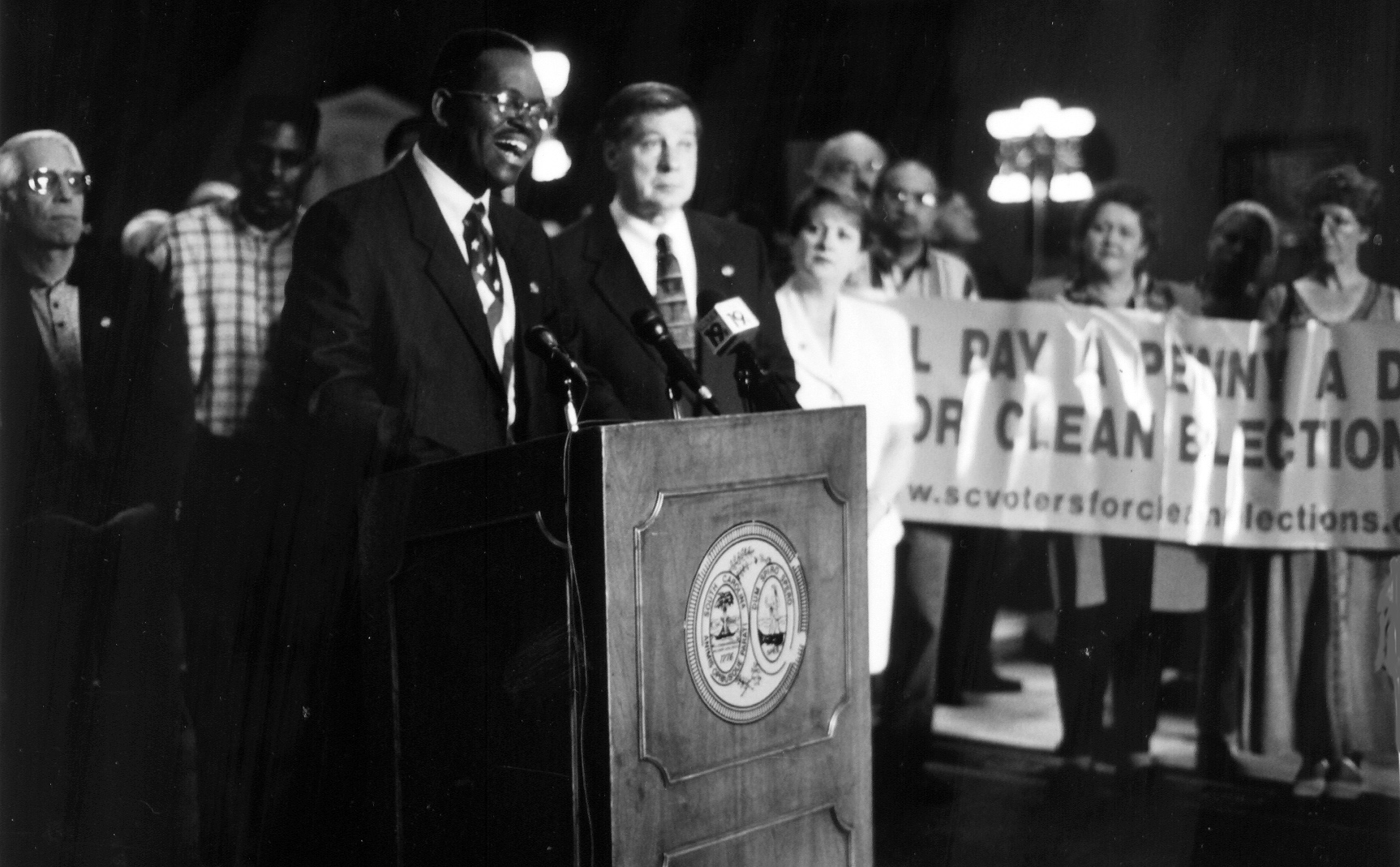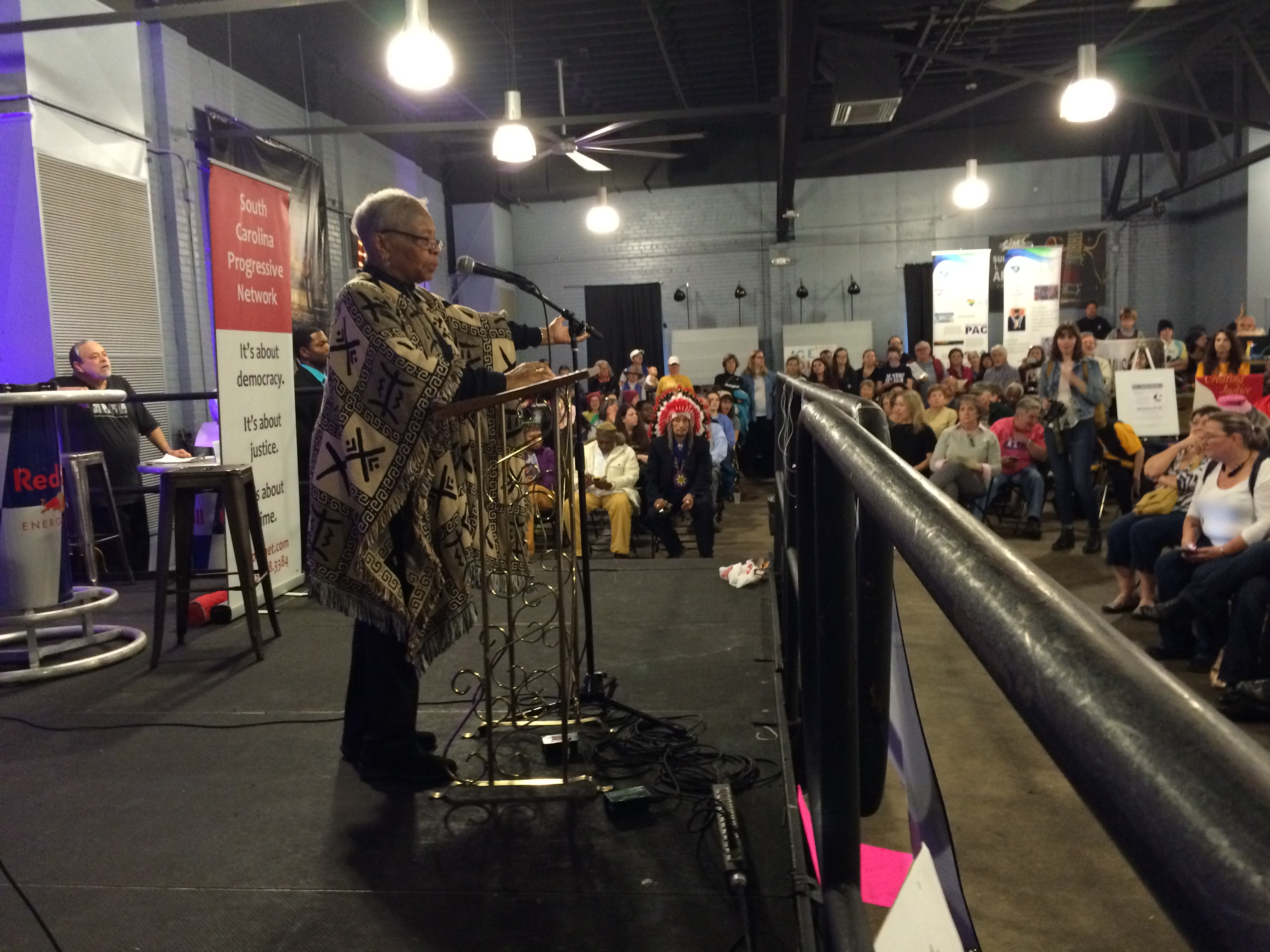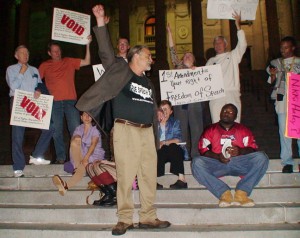 Lawmakers and advocates to pose solutions at Feb. 6 public forum in Columbia
Lawmakers and advocates to pose solutions at Feb. 6 public forum in Columbia
South Carolina has the least competitive elections in the country, according to a recent study that concluded only 6 percent of legislative races in the Palmetto State offer voters a viable choice of candidates.
The National Institute on Money in State Politics used three measures to determine the competitiveness of state legislative races, gauging the monetary spread between winners and losers, the success rate of incumbents, and whether candidates had opposition. In 98 percent of legislative races, the winner spent at least twice what the loser did, representing the greatest money gap in the Institute’s 20 years of national surveys.
The study highlights the critical need for reforming the system. Toward that end, the SC Progressive Network has assembled a bipartisan panel of lawmakers and good-government advocates to discuss legislative remedies at a public forum Feb. 6, 7-9pm at the USC School of Law, 1525 Senate St. in Columbia. The Money in SC Politics roundtable will be live streamed at the SC Progressive Network’s web site. A reception will follow the panel discussion.
“It’s our mission to educate South Carolina citizens, including politicians, about the lack of competition in our elections and how that fuels corruption,” said Kyle Criminger, co-chair of the SC Progressive Network’s research and policy institute.
John Crangle, the Network’s director of government relations, has been monitoring State House ethics for 30 years. “It’s the worst I’ve ever seen it,” Crangle said. “I haven’t had representation in the Senate since last April because my senator was charged with embezzling campaign funds. If he’s found guilty, I’m going to have to pay both county and state taxes for a special election to replace him.”
Crangle’s senator, John Courson, is one of four legislators indicted on corruption charges who faced no major party competition in their last election. Sen. Mike Fanning has introduced a bill (S-533) to require politicians convicted of corruption to pay for the special election to replace them.
The political scandal prompted Attorney General Alan Wilson to recuse himself from the investigation. He has taken money from — and given money to — parties now accused of using campaign funds for personal gain. In 2014, Wilson raised over $800,000 in his race for re-election, exceeding legal limits. Wilson took the maximum contribution from SCANA, a corporation he now is being called on to investigate. His Democratic opponent that year raised only $19,000.
Rep. Gilda Cobb-Hunter will explain her bill (H-4498) to allow candidates for attorney general to get a grant to run for office if they refuse all private money, including their own. “Our top law enforcement officer shouldn’t take money from citizens and corporations that he or she may have to investigate,” she said.
Rep. Cobb-Hunter and Sen. Fanning will be joined on the panel by Rep. Gary Clary (R-Pickens), who has introduced a bill calling for an independent redistricting commission (H-4456) to promote competitive elections and reduce partisan gridlock. Sen. Bill Timmons (R-Greenville) will discuss legislation requiring candidates to release their tax returns (S-765), and a bill to increase funding for the state Ethics Commission.
Lynn Teague, with the League of Women Voters – SC, will also be on the panel. “We need to look at the common threads in our ethics problems, our need for redistricting, and utility reform,” she said, “because they are all rooted in common causes.”





